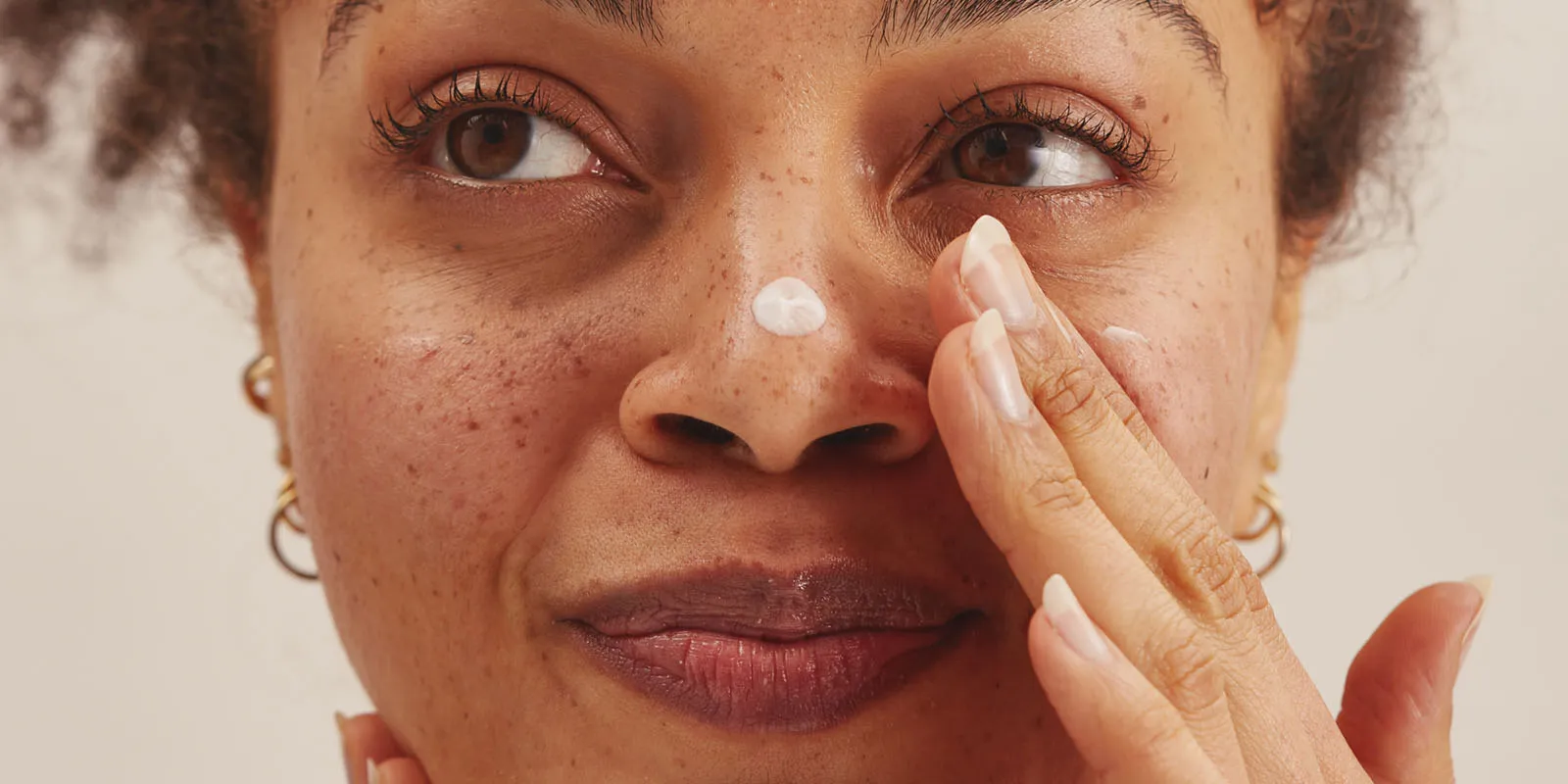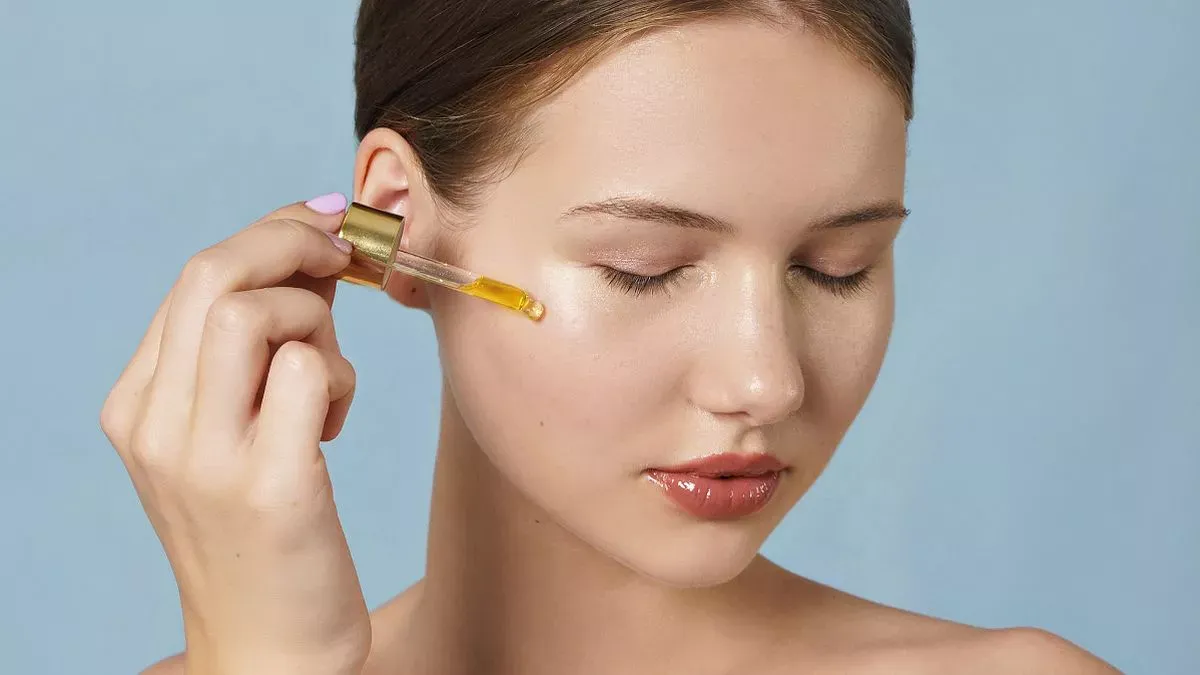Does vitamin C serum help with acne, or is it just another skincare myth? It is more than safe to say; it’s a game-changer for clear skin. Here’s how this antioxidant superhero fights breakouts and gives your glow a boost.

Acne can be like an unwanted guest who simply refuses to leave. If you’re thinking of clearing your skin, you’ve probably heard of vitamin C serum.
Does it really do anything for acne, though, or is it just another skincare trend? The answer is, yes, vitamin C serum can help with acne, but it isn’t magic. Let’s break it down so you can decide if it’s right for you.
What is Vitamin C Serum?
This is simply a skincare product that is packed with ascorbic acid, a powerful antioxidant. It’s well-known for brightening skin, whitening dark spots, and protecting against environmental damage. That’s not all it does, though—it can also assist in fighting acne.
It is celebrated for boosting collagen production, which keeps skin smooth and firm. It also protects the skin from sun damage, pollution, and free radicals.
So, using a vitamin C serum regularly can improve skin texture, even out skin tone, and leave your face feeling clean and young.
This serum is generally used after cleansing and before moisturizing. It takes only a few drops to cover the face. It absorbs quickly into the skin and works best when used in the morning under sunscreen or at night before bed.
How Does Vitamin C Help Acne?

Acne is generally red and inflamed because of inflammation. Vitamin C is anti-inflammatory and can calm irritated skin and reduce redness.
Vitamin C also happens to be an antioxidant, meaning it neutralizes free radicals (unstable molecules that damage skin). It keeps pores clear and prevents breakouts.
As acne heals, it may leave behind dark spots or hyperpigmentation. Vitamin C lightens these areas by suppressing the formation of melanin, making your skin tone more even.
Vitamin C helps your skin produce collagen, making your skin healthy and tight. This can heal skin damaged by acne and avoid scarring. As a secondary benefit, vitamin C can help regulate sebum production, which can reduce the likelihood of pores becoming clogged.
Using Vitamin C Serum for Acne
If you want to use vitamin C serum for acne, here is how you can utilize it:
1. Choose the Right Product
Seek a serum with at least 10–20% vitamin C. Most effective is L-ascorbic acid, though it can be irritating to sensitive skin. For sensitive skin, use gentler derivatives like magnesium ascorbyl phosphate.
2. Use on Clean Skin
Use the serum after cleansing and toning but before moisturizing. This will allow it to absorb effectively.
3. Gradually Begin
If you’re new to vitamin C, start by using it every other day to see how your skin reacts. Gradually increase to daily use if your skin tolerates it.
4. Layer Wisely
Avoid using vitamin C with benzoyl peroxide or retinoids at the same time, as they can cancel each other out or cause irritation. Instead, use them at different times of the day.
5. Don’t Forget Sunscreen
Vitamin C can make your skin more sensitive to the sun, so always follow up with sunscreen during the day.
What are the Benefits of Vitamin C Serum for Acne-Prone Skin?

Here’s why vitamin C serum is worth adding to your skincare routine:
1. Brightens Skin
It fades dark spots and evens out your complexion.
2. Reduces Redness
Its anti-inflammatory properties calm angry, red pimples.
3. Prevents Future Breakouts
By fighting free radicals and oil control, it keeps pores clear.
4. Improves Skin Texture
It boosts collagen, making your skin tighter and softer.
Vitamin C serum can be used by most skin types, including acne-prone skin. However, if you have extremely sensitive skin or conditions like rosacea, patch-test first or consult with a dermatologist. It’s also fine to use with other acne treatments, just alternate between them.
What Not to Do When Using Vitamin C Serum
Get the best out of your vitamin C serum by avoiding the following mistakes:
1. Using Too Much
A few drops will do. Loading up may lead to irritation.
2. Mixing with Incompatible Ingredients
Avoid using vitamin C with benzoyl peroxide, retinoids, or exfoliating acids (like AHAs/BHAs) at the same time.
3. Skipping Sunscreen
Vitamin C exposes your skin more to UV rays, so always apply SPF.
4. Using an Expired Serum
Vitamin C oxidizes with time and turns yellow or brown. If your serum changes color or smells odd, toss it.
While vitamin C serum can help with acne, it is not a replacement for specific acne products like salicylic acid, benzoyl peroxide, or prescription medications. It should be used as a supporting actor rather than the star. For best results, use it along with other products that treat acne.
Final Lines
Yes, vitamin C serum can help with acne by reducing inflammation, fading scars, and inhibiting acne breakouts in the future.
It’s a great addition to your skincare routine, especially if you’re dealing with post-acne scarring or skin discoloration. It performs best, and then, when paired with other acne treatments and a consistent skincare routine,.
Vitamin C serum is a skin multitasking superhero. It doesn’t just fight acne; it brightens, protects, and repairs your skin for a healthier, glowing complexion.
If you’re struggling with acne, give it a try and see how it transforms your skin. Just remember: consistency is key, and always pair it with sunscreen to keep your skin safe and glowing!
